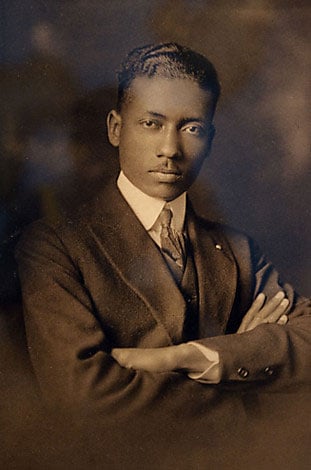General Discussion
Related: Editorials & Other Articles, Issue Forums, Alliance Forums, Region ForumsBlack History: Day 21 - Lorenzo Dow Turner - identified the African influences in Gullah dialect
Last edited Sun Apr 19, 2020, 10:20 AM - Edit history (1)
Lorenzo Dow Turner, PhD’26
A linguist who identified the African influences in the Gullah dialect.
http://magazine.uchicago.edu/1012/features/legacy.shtml
By Jason Kelly




The hundred pound tape recorder.
<snip>
To others, that’s all it was—a remnant of a pidgin language that slaves adapted from white influences. Turner, who had a Harvard master’s degree in education along with an English PhD from Chicago, heard the echoes of something more formal, although he couldn’t understand a word.
He asked the students what language they were speaking. “We’re Gullah,” they said, referring to cloistered communities of slave descendants on the Sea Islands of South Carolina and Georgia. Their response sparked what would grow into the defining ambition of Turner’s professional life: tracing the roots of Gullah vocabulary and culture. Other linguists had studied it before, but they determined that it contained no vestiges of African languages.
Reed Smith of the University of South Carolina believed that Gullah emerged as slaves altered the European-influenced English of white settlers. The Africans, he wrote in a 1926 pamphlet, would “wrap their tongues around it, and reproduce it changed in tonality, pronunciation, cadence, and grammar to suit their native phonetic tendencies.”
About the time Turner first heard Gullah, University of North Carolina’s Guy B. Johnson declared, “This strange dialect turns out to be little more than the peasant English of two centuries ago.” He found the perceived absence of African language influences “startling” but attributable to slavery’s devastating cultural effects.
Behind the Aegis
(53,939 posts)Few people even know it exists. I have actually heard it spoken in person on many occasions when I lived in SC.
marble falls
(57,063 posts)climate and cultural shift might be the one-two punch.
Behind the Aegis
(53,939 posts)However, there is a real effort in the area to maintain the language and the culture. There is more interest from the linguistic community and a few other professional, academic circles.
Check out "The United Shades of America" episode on Gullah, season 3, episode 3.